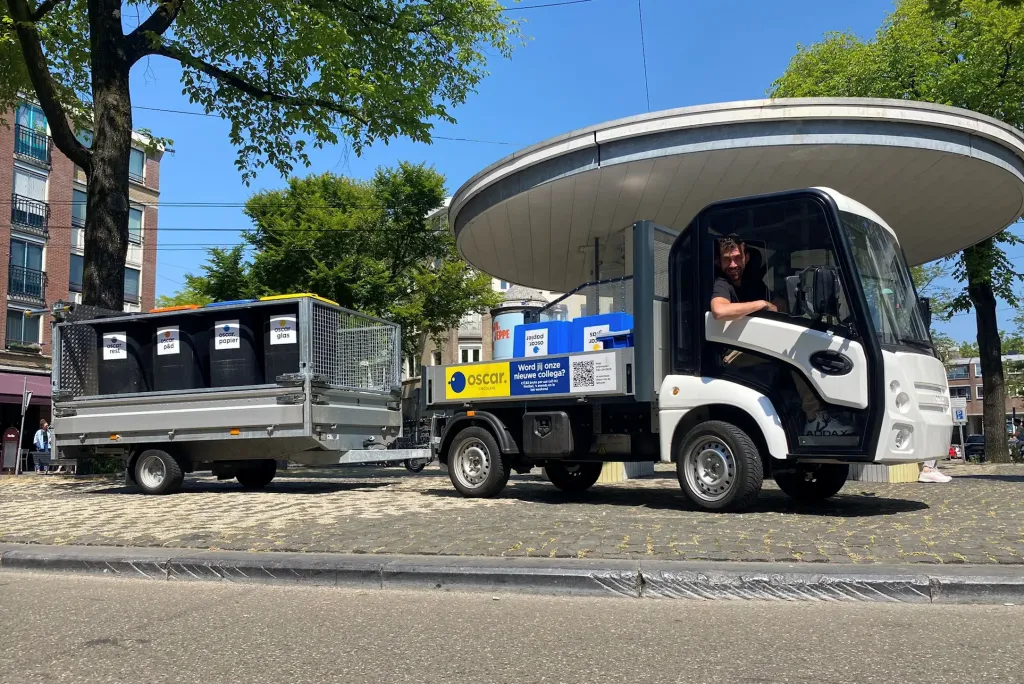More and more inner cities are struggling with a growing mountain of waste. Oscar Circular wants to take a radically different approach to that problem. With daily collections, electric garbage trucks and maximum commitment to recycling.

In many Dutch cities, several garbage trucks enter the same street one after the other every day. One truck picks up the old paper, another picks up the GFT, and an hour later a truck comes in for the residual waste. The result? Full roads and lots of emissions. 'It was a huge frustration for me to see how we together have set up such an inefficient system, where multiple trucks are needed to collect the waste at one address,' says Remco Wagemakers, co-founder of Oscar Circular. 'What we are doing now is simply not sustainable.'
The problem he outlines, however, goes beyond logistics. Wagemakers points to the resource shortages that are going to occur in the coming decades. 'Our current linear model of make, use and throw away is running aground. Yet we are still doing far too little to reduce the waste stream. Ideally, I would like to see us collect less and less waste. That may sound crazy to someone working in this sector, but that's exactly what it's all about.'
The Oscar Circular solution
.Oscar Circular wants to tackle these challenges fundamentally differently. The company works area by area in cities, with small collection points close to residents and businesses. Waste and raw materials are collected there separately and transported at smart times. This includes glass and paper, but also waste streams such as coffee grounds, discarded electronics, Styrofoam and wooden pallets. 'We are a waste and raw material collector that is shaking up the world of the waste market,' explains Wagemakers. 'Less logistical movements, less pressure on the inner city and all in a socially responsible way.'
The company is making use of electric vehicles, neighborhood teams and collaborations with local entrepreneurs. The goal: fine-mesh collection, but without the drawbacks. For example, the waste is collected indoors, so large containers don't have to keep going to the street. And that also benefits livability. 'We also want to restore the social fabric in the city,' Wagemakers says. 'That's why we're working with residents and businesses in the neighborhood. You see that people become more involved in their environment when they notice directly that their waste streams are being collected smarter and cleaner.'